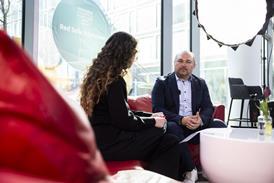Following its buyout of Grohmann Engineering last week, electric vehicle maker, Tesla, is looking for a site in Europe to build a lithium-ion battery ‘gigafactory’ similar to the one it is currently building in Nevada, in the US.
CEO Elon Musk made the announcement at a press conference in Germany last week and said the European plant could also make vehicles.
Tesla has not confirmed where it is looking to build the plant though at the press conference, Musk said it was planning “significant investments” in Germany.
The carmaker opened a vehicle assembly facility in Tilburg in The Netherlands last year (pictured) that is making the Model S for European customers from parts shipped in from Freemont, California.
Tesla is aiming to produce 500,000 electric cars per year by 2018. The purchase of Grohmann Engineering, an automated manufacturing specialist, ties in with Musk’s enthusiasm for fully automated factories and the “machine that makes the machine”.
If Tesla has ambitions to build a facility on the same scale as the one in Nevada it will need a location with a lot of available development space. It has been reported that, when completed, the Nevada facility will be the second biggest building in the world by volume (after Boeing’s Everett Factory in Washington). The company will need economies of scale to meet its goal of reducing the cost of battery production by a third. Furthermore, if it intends to replicate the solar power supply that is being built into the Nevada facility, a location further south in Europe may be more likely.
Distribution of the Model S in Europe began in 2012.
Tesla now has around 70 stores and service centres across 12 countries in Europe. The vehicles are shipped to the service centres for pre-delivery inspection before being delivered to customers.
Electric vehicle battery development is gathering pace in Europe this year. Samsung SDI is building a $365m plant in Hungary with an annual capacity of 50,000 batteries for the EV market in Europe. Last month, meanwhile, Daimler began construction of a second lithium-ion battery factory in Kamenz, south-east Germany with an investment of $544m.

























![Global[1]](https://d3n5uof8vony13.cloudfront.net/Pictures/web/a/d/s/global1_726550.svgz)











